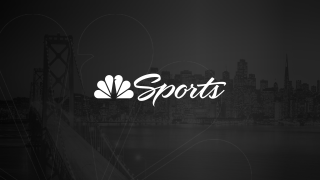
The 49ers have gone from one of the NFL's best teams to one of its worst in the span of just two years.
While the team lost several players to free agency and retirement, the ousting of coach Jim Harbaugh can be seen as the catalyst.
Prior to Harbaugh's dismissal—a coach who went 44-19-1 over four seasons, including a Super Bowl appearance—CSN Bay Area learned of "an undisclosed incident or series of interactions occurred that irreparably tore at the trust that must exist between a coach and general manager."
Stay in the game with the latest updates on your beloved Bay Area and California sports teams! Sign up here for our All Access Daily newsletter.
[MAIOCCO: 49ers GM Baalke takes hands-on role with Ward, Tartt]
Tension between Harbaugh and general manager Trent Baalke became known as the 49ers struggled to get their titanic roster over the Super Bowl hump.
General managers in an anonymous survey recently spoke out to NFL Network's Albert Breer on the sensitive nature of the head coach-general manager dynamic, as far as making the right hires and setting up a pairing for a chance at success. And a cohesive work relationship between the head coach and general manager was identified as priority No. 1.
"[Rapport] is the most important thing," one general manager told NFL Network, who was identified as a veteran of the NFC. "And it is for multiple reasons. The coach and GM have to share a vision. And once you start that relationship, you have to have clearly defined roles.
San Francisco 49ers
"If it's that [the coach] is coaching and I'm bringing [players] in, once I start to veer and step over that line, everything becomes blurred and dysfunction follows."
[MAIOCCO: Tomsula: Anthony Davis is 'an offseason discussion']
It was not a performance issue in San Francisco, as Harbaugh ranks behind only John Madden and Vince Lombardi among modern-era coaches in winning percentage, but creative and philosophical differences that led to the coach's departure.
Since Harbaugh has been at the University of Michigan, Baalke has been on the 49ers practice field interacting with players, going as far as to teach technique.
The NFC GM continued, "You have to involve your coaches, you have to hear them and make them a part of the process. And the coaches have to be clear with you. Everyone has to check their ego at the door. Now, if the GM and coach don't trust each other, it really is amazing how something so simple can start going backwards because of egos."
Breer cites examples of New England, Arizona, Green Bay, Seattle and Carolina as successful franchises that display harmony between the front office and staff.
San Francisco is an example of when front office turmoil can cause an outward ripple that affects the rest of the franchise—effects that Indianapolis, Houston and Philadelphia are also experiencing this season.
Another NFC GM weighed in on this dynamic:
"It's ----ing huge. It's paramount that the relationship is amicable and respectful and communicative and split down the middle. You really have to have an understanding of and respect for each other's roles, and they have to be well-defined, so there's no tripping up. And you have to understand the coach will be involved in personnel and evaluations, and the coach has to be direct about what they need. It's huge."


